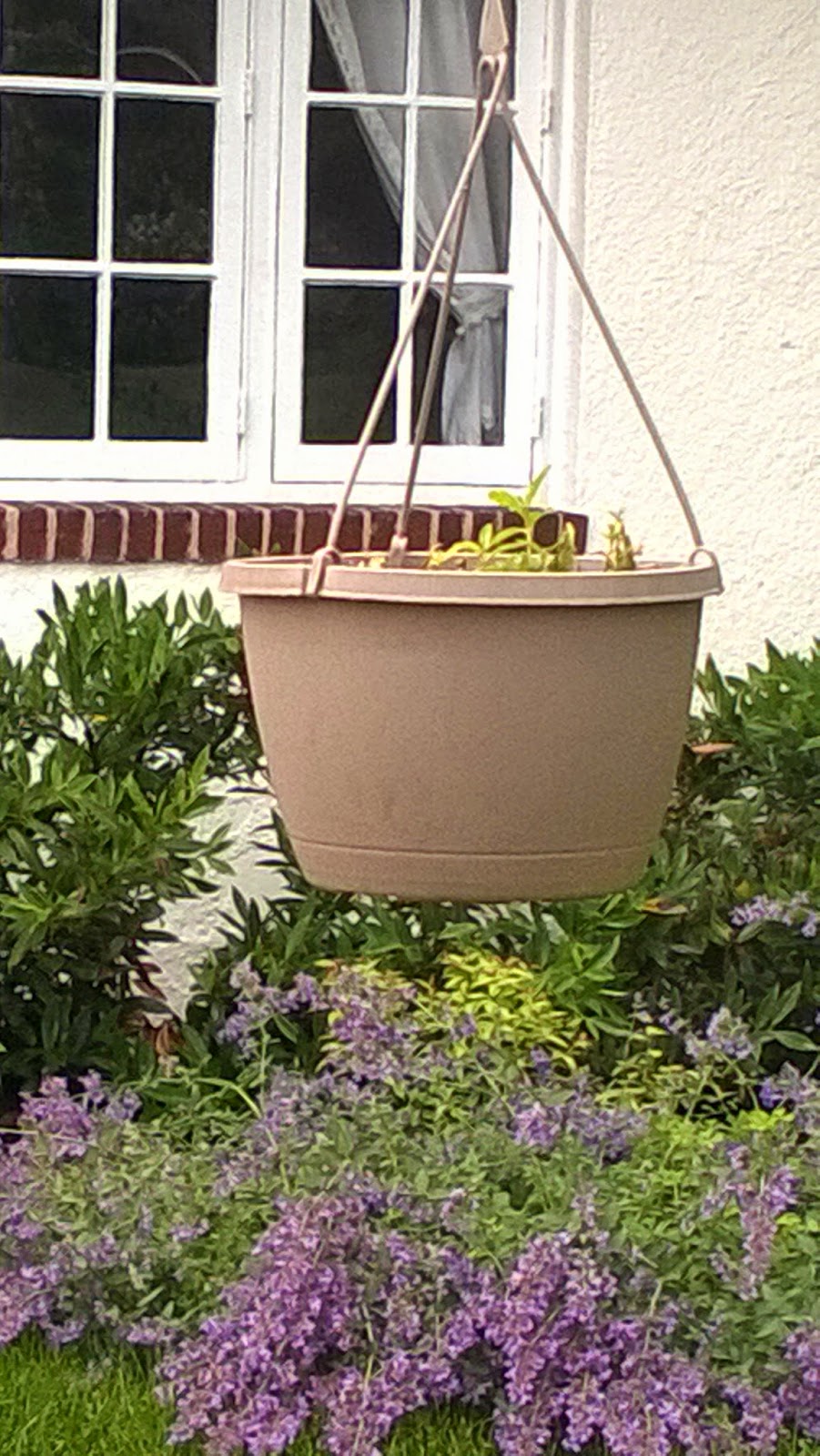 |
| It used to be a trailing vinca. Maybe it will be again . . . |
Despite the fact that my calling may not be a horticultural one, I have been enjoying the yard and garden this spring. With Luc's help, I planted a variety of vegetable seeds in the greenhouse (which came with the house in lieu of a garage). We moved the plants outside when the weather became warm enough, and I love weeding, watering, and waiting for things to grow (even if they seem a little slow to me). When I saw, last Tuesday, that some wild creature had been breakfasting on my already undersized bean plants, I cancelled all my morning's plans in favor of a trip to Lowe's for stakes and netting to keep the critter out. That meant that I actually failed to clean one of our bathrooms this week, which is a major deal in my life, because I had written "clean bathroom" in my planner. Clearly, the garden is a priority.
I have been learning a lot about gardening. This week, for example, I learned that I had already waited almost too long to prune our azalea bushes, which are numerous and uncontrolled. I have already invested hours clipping (sometimes hacking -- these things are probably 50 years old, and who knows when they were pruned last). I'm only about halfway done. It turns out that inside almost every living bush, there's a dead one. At least no one can say I killed them, as they were already dead when I arrived. Gardening's lessons go beyond the practical, though. The fact that Jesus used gardening in several parables makes perfect sense to me; I'm sure there is a life lesson in the dead azalea -- ideas, anyone? One can ponder the spiritual and psychological applications of such gardening experiences as the persistence of weeds, the fact that a flower in one spot may be a weed elsewhere, and the miracle of an enormous tomato plant coming from a tiny seed. I have had ample time to ponder such things while battling azaleas and digging up dandelions.
This week, partly due to the fact that I moved some of the last plants out of the greenhouse, my thoughts have turned to transplanting. The term "hothouse flower" kept coming to mind. The online Urban Dictionary defines a hothouse flower as "a flower than isn't hardy enough to grow under natural conditions. It has to be pampered and grown in a greenhouse or hothouse. In regard to people it's used to describe someone who needs pampering or special conditions." The man who built our greenhouse, we are told, raised orchids, which one could definitely classify as hothouse flowers. They are beautiful, but need special care. My vegetables, for the most part, are not of the hothouse variety. If I left them in the greenhouse, I think they might die. There isn't enough soil for them to grow deep roots, and the lack of wind, rain, or cool temperatures mean they aren't becoming strong. For them to grow, I had to move them.
So first, that made me think of my kids. I have a tendency to want to monitor and control every aspect of their lives, like I can when the plants are in the greenhouse. But just like the plants need to be moved -- and even to have some adverse experiences -- to mature, so do my kids. I noticed, though, that when I transplanted the seedlings, some did better than others. The picture below shows the parsley, basil, and stevia after their move to bigger pots.
 |
| It's a little difficult to see, but the stevia is wilting. The move was clearly a shock to its system. |
 |
| Three days later. |
It worked for the stevia.
No comments:
Post a Comment